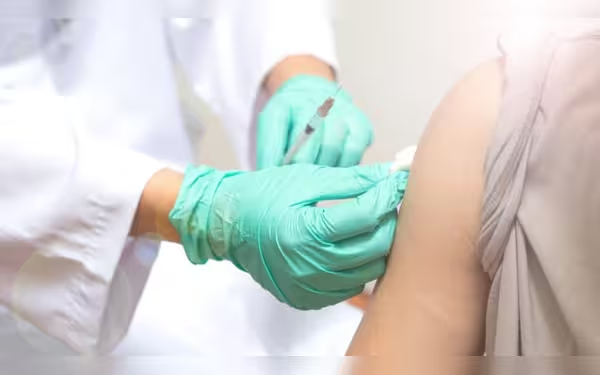Saturday, December 21, 2024 04:34 PM
Flu Vaccination Trial at Retail Pharmacies in Singapore
- Over 530 flu jabs administered in trial program.
- Pharmacists aim to enhance public healthcare access.
- Public awareness remains a challenge for vaccination uptake.
 Image Credits: channelnewsasia
Image Credits: channelnewsasiaSingapore's MOH trial allows pharmacists to administer flu jabs, enhancing public health access amid low customer turnout.
In a significant move to enhance public health services, the Ministry of Health (MOH) in Singapore has initiated a trial program that allows trained pharmacists to administer influenza vaccinations at retail pharmacies. This program, which began last month, aims to explore how pharmacists can contribute more effectively to public healthcare. As of November 26, over 530 flu jabs have already been administered under this initiative.
The trial is designed to make flu vaccinations more accessible to the public. Customers can simply walk into any of the participating retail pharmacies to receive their flu shots. Additionally, they have the option to schedule appointments through the pharmacies' websites, making the process even more convenient.
Despite the encouraging numbers, a recent visit to the pharmacies revealed a lack of customer activity. On December 2, no customers were seen queuing for vaccinations at the three participating pharmacies. Staff members at Guardian and Watsons reported that there were still walk-in slots available, while Unity Pharmacy's vaccination area appeared unoccupied. This raises questions about public awareness and the overall demand for flu vaccinations in this new setting.
Both Guardian Health & Beauty and the FairPrice Group, which operates Unity Pharmacy, expressed optimism regarding the trial's response so far. A spokesperson from FairPrice Group mentioned that they are considering training more pharmacists to meet the anticipated demand for flu jabs. This proactive approach could help ensure that more citizens have access to vaccinations, especially during peak flu season.
Eligible Singapore citizens who choose to get vaccinated at these pharmacies will benefit from the same government subsidies available at Community Health Assist Scheme (CHAS) clinics. Co-payments for the vaccinations are capped between S$9 and S$35, similar to the costs at CHAS clinics. However, the actual charges may vary from one pharmacy to another.
As the trial progresses, it will be crucial to monitor its impact on public health and the community's response to pharmacist-administered vaccinations. The success of this initiative could pave the way for more innovative healthcare solutions, ultimately leading to a healthier population. It is essential for the public to stay informed about such programs and take advantage of the services available to them, especially during flu season.













